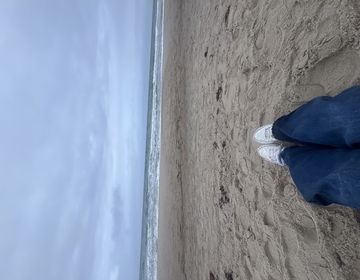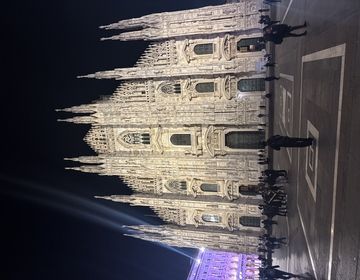The Entrepreneurs Guide to the Berlin Startup Scene
Bastian Behrmann is the Berlin Location Manager and has been involved and working in the Berlin startup scene since 2016. He coaches and guides all of our participants while on the program as well as getting them connected to important founders and investors in the local startup ecosystem.
Berlin was calling and startups were answering. In only 10 years Berlin has become one of Europe's leading startup centers.
“With a new startup being founded every 20 minutes in the city, Berlin is a breeding ground for entrepreneurs” Startupguide Berlin
The Financial Times reported that German startups saw record investments in 2018 of €4.3 billion. According to Ernst and Young In 2019, the deal volume in Germany reached 2.8 billion Euros, which is a new half-year high. Berlin remains the hotspot of the German start-up scene since a good 40 percent of all listed financing rounds accounted for start-ups went to the German capital.
To see why Berlin stands out and what makes the ecosystem so special we need to take a look back in time. Berlin has always been in a state of reinvention.
“Berlin kept and keeps failing, getting knocked down, creatively pivoting and reinventing itself. Berlin is an entrepreneur!” Travis Todd
Only 100 years ago “The Greater Berlin Act” was passed in 1920 and merged the city of Berlin with Charlottenburg, Köpenick, Lichtenberg, Neukölln/Rixdorf, Schöneberg, Spandau and Wilmersdorf. Only 25 years later, after World War II it laid in ashes and the city was forced to start over again, but divided with two systems.
The eastern sector became the capital of East Germany (GDR) and all existing industries were nationalized. West Berlin was an island in the GDR, affiliated with West Germany, but not a real part of it. With the wall up and prospects down, most of the industrial and financial powerhouses moved their headquarters: Siemens and Allianz to Munich, Deutsche Bank, and AEG to Frankfurt.
When the wall finally came down in 1989 the infrastructure and economy were at rock bottom. Highly qualified Germans left the former east and found better jobs in the west, which left behind an empty playground for the creative scene. Drawn in by low rents and subsidies the city turned out to be an attractive hotspot for young and creative people. Berlin was a totally different city from the one we know today. Many buildings were abandoned and property rights were unclear, but three brothers from Cologne were about to change this.
The “Samwer” brothers might be known by many as the founders of the Berlin startup scene. They cloned some successful startups from the US like the eBay clone Alando, which they then sold to eBay for $50 Million and afterward founded Jamba in 2000, which was a ringtone supplier. They then sold it to Verisign for 273 Million USD.
Over the next few years, the brothers invested in German versions of YouTube (MyVideo), Twitter (Frazr) and Facebook (StudiVZ), as well as other technology properties based on US models. Not all were successes, but there were enough to suggest that the Samwers could take their model one step further. In 2007, they founded Rocket Internet, their Berlin-based incubator that's often derided as a clone factory. This startup incubator identified successful business ideas in the big markets and copied them like Zalando, inspired by Zappos.
Even though they have caused controversy in the community, it is important to acknowledge that they did provide the foundation for Berlin's tech scene today. They taught entrepreneurs how to build a business and provided the city with developers, engineers, product managers, online marketers, and logistic managers. At that time, Berlin still had a high unemployment rate, very low rents and a lot of potential. In 2006 Berlins mayor Klaus Wowereit claimed: “Berlin is poor but sexy”. At this time making money with clones was the way to go, but not everyone agreed.
In 2011 a blog at Wunderlist stated “Founders STAND UP! The anti-copycat revolution starts”
Innovative entrepreneurs with startups like Soundcloud, Amen, 6 Wunderkinder, and ResearchGate fought back with creative ideas and innovation. A middle ground between crazy ideas and real businesses was starting to grow. Berlin began to build up its reputation as a real start-up hub.
English blogs like Silicon Allee, founded by Travis Todd, talked about what was happening in the scene and pulled the attention of startups from all over the world. Tech Open Air (TOA), an annual interdisciplinary technology festival, started in 2012 and was the very first tech festival organized through crowdfunding. In 2013 the startup event “Disrupt” finally came to Europe and was held in Berlin.
Attracted by the growing ecosystem, low rents, wages and cost of living, more international founders came to Berlin. VC firms, accelerators, and incubators were also attracted to the ever-expanding scene.
With Rocket Internet, The Family, Techstars, Project A, Entrepreneur First, APX and many more, Berlin offers a lot of support for aspiring founders and young startups. The Berlin startup ecosystem became one of the richest in Europe in only 10 years. (You can learn more about funding possibilities in Berlin here.) Every entrepreneur could leave a footprint because it radiates a vibe of trying things out and exploring.
The first co-working spaces were founded by betahaus and Sankt Oberholz and the number should grow to over 100 by 2019. Berlin has quickly become the place to be. A place to try out ideas without the fear of running out of funds too quickly, as is often the case in London. However, a side effect of the rapid growth was, that rent prices skyrocketed in the last years.
But there is still something special about Berlin. If you go to one of the many meetups or startup events like “betabreakfast”, “first curated Friday”, the “silicon allee monthly meetup” or any other event you find on meetup.com, in the slack group “Startup Berlin” or in one of the many facebook groups like “startup events Berlin”, you’ll always find fellow entrepreneurs that are happy to share ideas, collaborate or just meet for a coffee.
Even if it’s become more mature and less poor in the past few years, Berlin is for sure still very sexy for entrepreneurs.
Related Posts
Embracing Independence on a Solo Trip to Rostock
By: Brooke Menzock One thing I’ve loved while being abroad is the independence and the freedom to go anywhere I want, whenever I want. As a very independent and adventurous... keep reading
3 Cities in 5 Days? Challenge Accepted!
By: Madeline Passarello Throughout my time studying abroad I had so many amazing experiences. Studying in Berlin gave me the ability to travel to 15 different cities over the course... keep reading
Berlin Bites
By: Nina Marra Studying abroad in Berlin has been nothing short of amazing. One of my favorite breakfast places in Berlin is Breggs, which is an egg sandwich place that... keep reading




